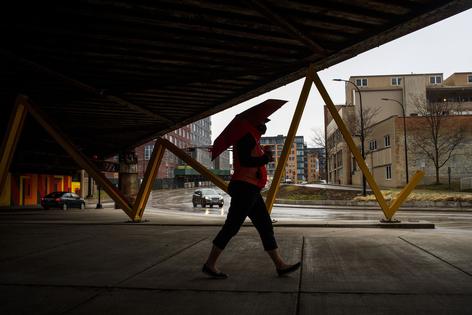The Complicated Road to Slavery Reparations — and the Need for An Apology
When “The Daily Show” host Trevor Noah opened his nightly monologue with “Let’s talk about slavery” a couple of years ago, he immediately followed with alarm, “No, white people, come ba-a-a-ack.”
Right. That’s the voice I hear whenever I consider writing about slavery reparations. Nothing in my many years of punditry triggers voices of rage and resentment like the R-word — whether from voices on the far right or far left.
If anything, I find it ironic that some of the same people who vigorously defend the preservation of statues honoring the Confederacy tell the descendants of slavery to just “Get over it.” History does matter.
Yet, I also have taken plenty of heat from progressives for agreeing, however begrudgingly, with Senate Republican Leader Mitch McConnell of Kentucky that there’s really no way — politically or practically — to adequately compensate all of today’s African Americans for the enslavement of our ancestors so long ago.
Yet, two years later, the issue has taken on new life in places such as Evanston, Ill., which in March became what is believed to be the nation’s first city to offer reparations to Black residents who have suffered housing discrimination.
The modest but historic resolution directs initial funding of $400,000 from the city’s Local Reparations Fund, funded mostly by a new tax on legal marijuana. The fund will award up to $25,000 to 16 eligible households to help with a home purchase, repairs or improvements.
Applicants must have been Black residents between 1919 and 1969 or a direct descendant. They also may qualify if they experienced housing discrimination because of the city’s policies or practices after 1969, the resolution says.
Other cities have taken a similarly targeted approach to reparations in the era of racial reckoning following the George Floyd murder.
For example, the Asheville, N.C., City Council voted unanimously in July for reparations that would take the form of helping businesses and providing housing and health care. Other local governments considering reparations in some form include Amherst, Mass., Providence, R.I., and Iowa City, Iowa.
In California, elected officials in Manhattan Beach in Los Angeles County announced a bill to restore property now known as Bruce’s Beach to the Black family whose resort on that oceanside property was wrongly seized by city officials in 1924.
In Washington, Georgetown University has announced a fundraising goal of $400,000 a year to benefit the descendants of the 272 slaves who were sold to help keep the college afloat almost 200 years ago. Now students who had voted to pay for it through additional fees won’t have to do so.
Yet while some other states, mostly where Democrats control the legislatures, have introduced proposals to study the possibility of reparations, most have stalled, according to various reports.
Particularly among Republicans, there is widespread agreement with McConnell’s sentiments that granting reparations is an idea whose time has not come.
But the debate so far has centered mainly on who has benefited from what happened years ago. Yet, as in lawsuits, it’s important to establish money damages, which seldom have amounted to more than a token amount in reparations efforts compared with how much damage was suffered.
For example, a commission formed after World War II paid out about $1.3 billion to Native Americans by the time it dissolved in 1978 — but that sum amounted to less than $1,000 for each Native American.
Congress voted to extend an apology and pay $20,000 in 1988 to each Japanese American survivor of the World War II internment, a token gesture compared with the property and freedom they lost.
Similarly, in my view the Black descendants of American slavery, like yours truly, need not hold our breath waiting for monetary reparations unless we have a claim as specific and documented as those at issue in Evanston or at Georgetown.
That may take some digging, but it would be worth it. Celebrated Black author Ta-Nehisi Coates, for example, got the current reparations ball rolling with his reporting for The Atlantic on how federal housing policy, among other abuses, cost countless Black folks the ability to build wealth that routinely was granted to white homebuyers.
“I don’t think reparations for something that happened 150 years ago for which none of us currently living is responsible is a good idea,” McConnell said as the House began hearings on the issue in 2019. “We’re always a work in progress in this country. But no one currently alive is responsible for that.”
No, but some people still alive did benefit from it. An official apology would be nice.
========
(E-mail Clarence Page at cpage@chicagotribune.com.)
©2021 Clarence Page. Distributed by Tribune Content Agency, LLC.
(c) 2021 CLARENCE PAGE DISTRIBUTED BY TRIBUNE MEDIA SERVICES, INC.










